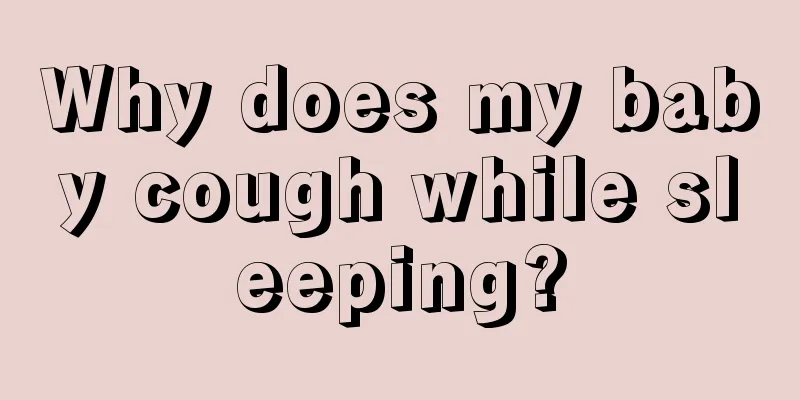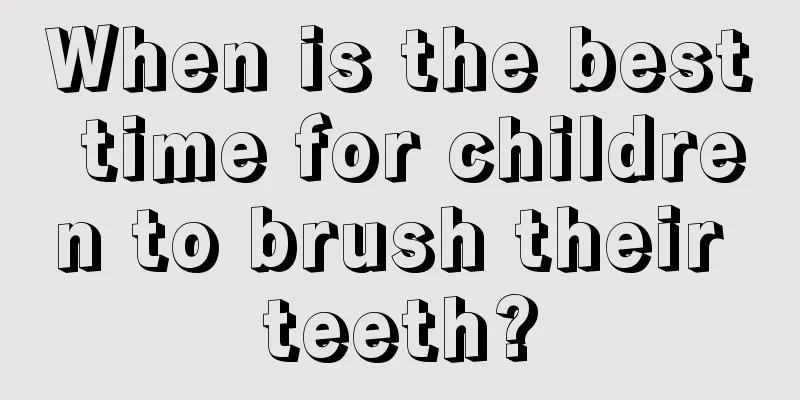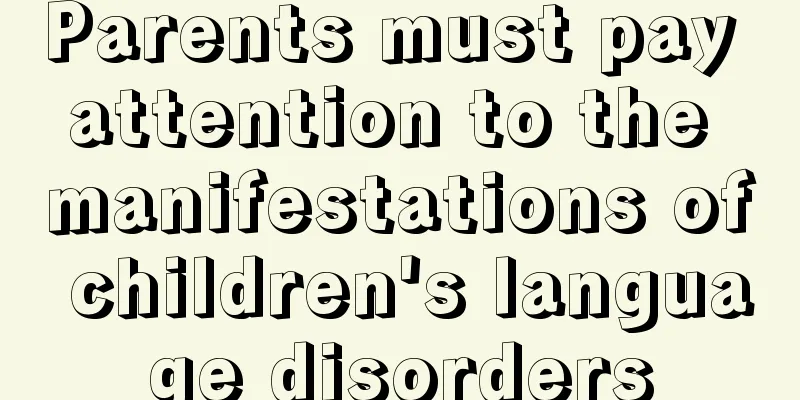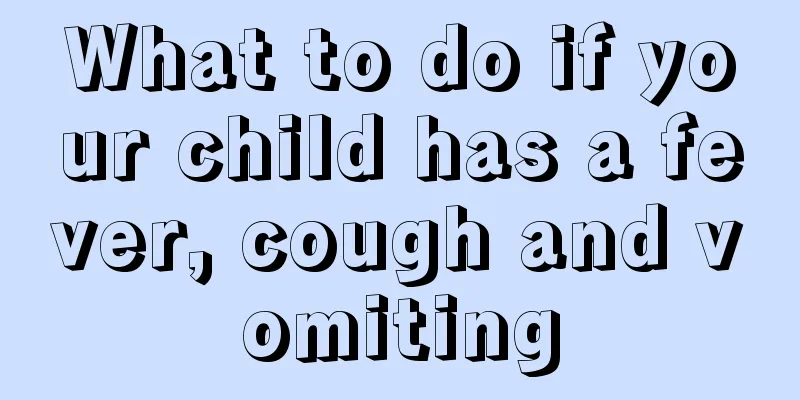What to do if your child has a fever
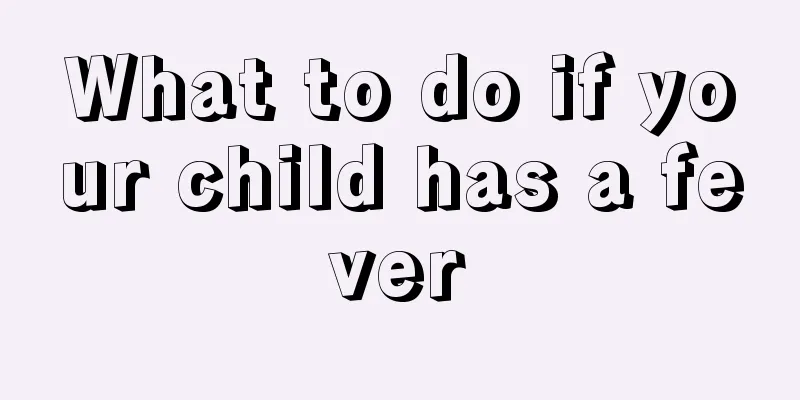
|
Because children's resistance is poor, they are not yet very adapted to the external environment, and their bodies cannot withstand enough stress. They often catch colds due to wind or failure to replenish water in time. In the following article, let's learn about what to do if a child has a fever. There are many causes of fever in children, which can be roughly divided into the following three categories: 1. External factors: Children's body temperature is affected by the external environment, such as wearing too many clothes when it is hot, drinking too little water, and poor ventilation in the room. 2. Internal factors: Sickness, cold, tracheitis, sore throat or other illness. 3. Other factors: Such as preventive injections, including measles, cholera, diphtheria, pertussis, tetanus and other reactions. Fever is only one symptom of the disease, not all of it. Dr. Song Wenju, director of the pediatric department, said that when it comes to fever, doctors are concerned about the impact and progression of the disease itself, but parents usually only see the appearance of the disease, such as fever, vomiting, and coughing, and then become panicked. Little do people know that when doctors treat diseases, the most important thing is to discover the cause of the disease and find a way to completely cure it, rather than simply reducing the fever. So in some cases, the fever symptoms will be allowed to continue to appear in order to find the true underlying cause of the disease. Therefore, he reminded loving parents not to blindly ask doctors to reduce fever or treat fever symptoms, but to follow the doctor's advice, accurately find out the real cause of the fever and prescribe the right medicine. Fever will not "burn the brain" - Is it necessary to reduce fever? The reason why parents go crazy as soon as their baby has a fever is nothing more than a traditional concept that a fever will damage the child's brain. Dr. Ding Qiwen, director of the pediatric department, said that a high fever itself will not cause "brain damage and intelligence deterioration". Such misunderstandings existed in the past because medical knowledge was not yet popularized and the causes behind high fever were not clearly distinguished. In fact, only diseases such as encephalitis and meningitis where the brain itself is damaged by viruses will harm intelligence or sensory functions, rather than fever making people stupid or deaf. She further emphasized that the temperature control center of infants and young children is not as stable as that of adults, and a mild viral infection may cause a fever as high as 40°C. Parents only need to know how to deal with the fever. As for the diagnosis of the cause, it should be left to a professional doctor, and there is no need to worry too much. Mothers must not be anxious. In fact, children's fever is also a phenomenon of expelling cold air. You can choose medication treatment, and it is best to go to the hospital for examination. If the fever is severe, it must be controlled in time to prevent encephalitis, etc. |
<<: Reasons why children always have fever at night
>>: What is considered a fever in children?
Recommend
Is it okay for babies to take a bath every day in winter?
In the cold winter, many mothers are afraid that ...
The child does not eat breast milk but only eats from a bottle
Because babies mainly bite the mother's nippl...
What is the reason why children don't grow taller?
Every parent in the family hopes that their child...
What to do if your child has a clavicle fracture
Children's bones are relatively fragile, so t...
The baby has no pain in his legs but walks lamely
After the baby is born, mothers will encounter va...
What to do if something gets into your child's nose
Children are particularly curious about everythin...
What is the normal body temperature for premature babies?
For newborns, due to different physical constitut...
What medicine should children take for diarrhea?
Children in their early childhood have very poor ...
What is the best way to give eye drops to babies?
Many mothers have worries of one kind or another ...
Baby neck red care
Babies have relatively weak immune systems, so ma...
Symptoms of damp heat in children
Children have a relatively weak constitution and ...
The child has not had a bowel movement for three days
For most parents, their children's health is ...
How much milk should a 2 month old baby take?
The baby's body is gradually developing. Duri...
Causes of fever in children's hands and feet
Relatively speaking, children's constitution ...
Is it okay to feed pig intestines to children?
Many people like to eat pig intestines, but you n...
